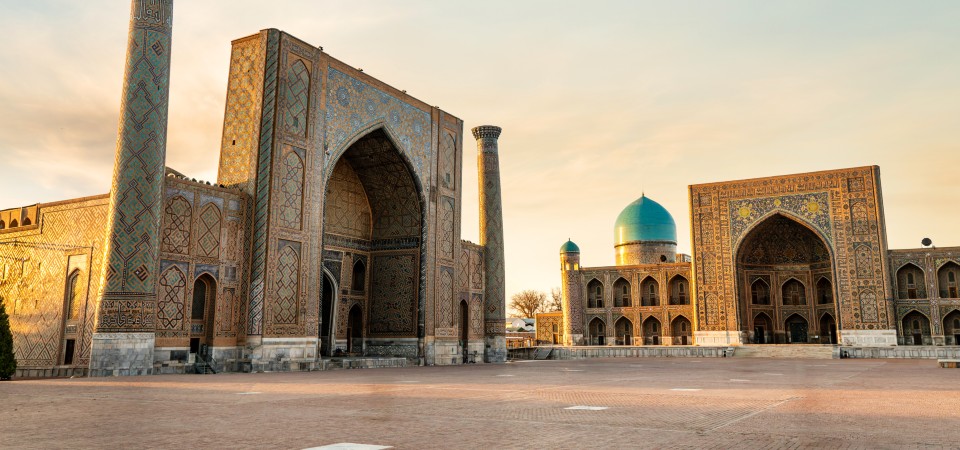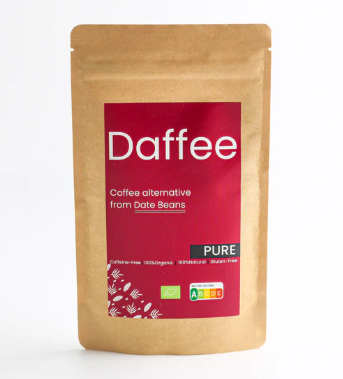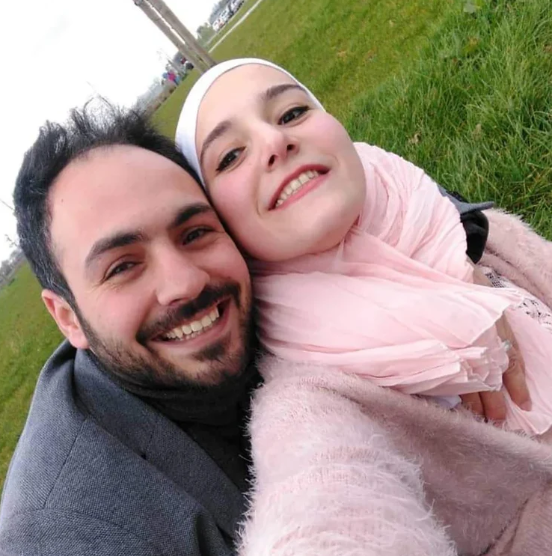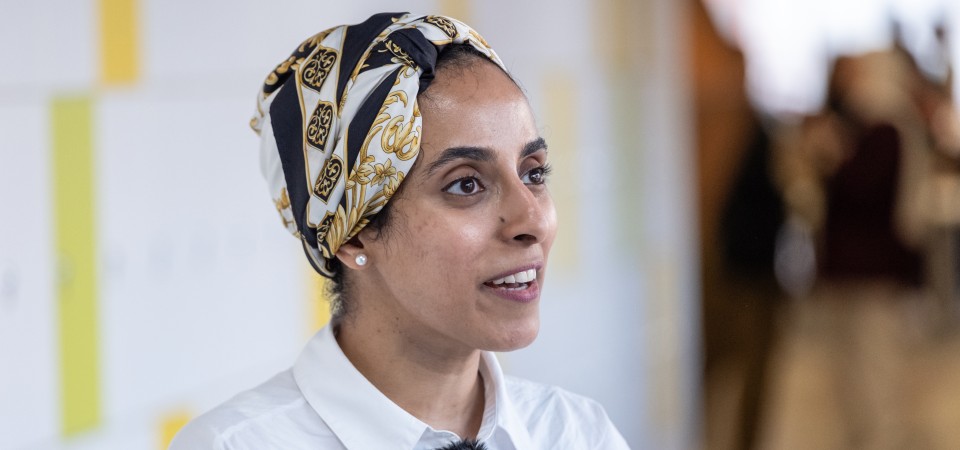“In Samarkand, we always cooked for community. Food was never just for eating – it was for sharing culture. Now, in London, we are doing the same.” – Sanobar Majidova.
Sanobar, 47, came to the UK in 2003, leaving behind friends and family in Samarkand, in Uzbekistan, in the hope of finding a better life and better education for her children.
For her and her husband, Akbar Majidov, 51, food was the bridge between their old home and their new start here in England.
Samarkand, an ancient Silk Road hub, has a culinary tradition that the couple now share through a 1,000-year-old recipe for palav – made with meat, rice, vegetables and spices – via their Central Asian street-food business, Samarkand Palav.
They endured a 10-year wait for asylum status, working in hotels and raising their family, before branching out on their own.
Then in 2023, with support from the TERN and KERB – organizations featured at Loughborough University hosted Refugee Entrepreneurial Network (REN) summit – via McCain's Streets Ahead programme, the couple launched Samarkand Palav, winning a £10,000 micro-grant that helped them scale to festivals and regular market slots.
“Without organisations like TERN, maybe I wouldn’t have started,” said Akbar.
“They showed us the exact steps we needed – not too much, not too little.”
 The Ulugh Beg Madrasa, an Islamic school in the historic centre of Samarkand, Uzbekistan. Credit: Getty
The Ulugh Beg Madrasa, an Islamic school in the historic centre of Samarkand, Uzbekistan. Credit: Getty
Last month, at Loughborough University London’s campus on the Queen Elizabeth Olympic Park, more than 200 people gathered for the 2025 Refugee Entrepreneurship Network (REN) Summit – including Sanobar and Akbar, who catered the event.
Among policymakers, funders and academics were dozens of former refugees – now business founders – who told their stories of loss, resilience and renewal.
“It was amazing to see so many of our past members back with us,” said Dr Michelle Richey of Loughborough Business School, who organised this year’s summit. “Most come from very challenging backgrounds.
“From homes ravaged by wars and conflict, from persecution, from poverty.
“Our aim at REN is to give everyone the best possible opportunities so they can achieve their potential – and today is a wonderful testament to those who have succeeded.”

From Syria to Amsterdam… Rahaf Allymoni
When war forced Rahaf Allymoni, 32, to leave Syria, she carried with her not just memories of Damascus, but a determination to create something meaningful.
After studying in Spain, she sought asylum in the Netherlands, reuniting with her fiancé, Tamim, after years apart.
“I travelled by myself to Spain, I did my Masters there. After, we faced many challenges with my fiancé, he was in Turkey, I was in Spain.
“Unfortunately, we couldn’t meet because of visa issues.
“So, I took my decision… I will make asylum.
“I found the Netherlands is the easiest country at that point. So, I travelled there by myself.
“I went to asylum centres. It was a very difficult journey.
“When I remember it, I would like really to cry because I was a student, by myself. I had money, but I felt my future was uncertain.
"Then my fiancé arrived. The first time we hugged each other, kissed each other, was at the refugee camp gate.”

Together, supported by REN network affiliates Forward·Inc, and later Rabobank and WingInvest, they launched Daffee, a coffee alternative made from upcycled date seeds; turning food waste into a sustainable, healthy drink.
Today, their product is stocked in more than 700 shops across Europe and produced in their own factory.
Survey data by REN shows how ventures like Rahaf’s get from idea to market: organisations commonly offer business-idea and model development, legal/admin help, and funding enablement, and founders who don’t launch immediately still benefit – about 50% of “non-starters” find work or improve their job prospects.
“Our journey has not been easy,” Rahaf said. “I am so proud of what we have built and grateful for the help we’ve had.”
The REN survey, shared at the summit, revealed the numbers behind the refugee success stories.
Across 90 organisations, based in 17 countries, the network has helped launch more than 13,000 businesses.
Around 35% of refugee-founded businesses go on to employ staff, with on average two-to-three employees per business.
And crucially, about 60% of businesses are still operating after three years – on par with mainstream small-business survival globally.
From Yemen to London… Fatma Al-Baiti
Fatma Al-Baiti, 36, left Yemen in 2014 to study for a Masters in social entrepreneurship in London.
Six months later, war erupted at home and returning became impossible. She sought asylum in the UK, eventually building a career in government and social media.
Through TERN, a partner in the REN network, she experimented with Yemeni brunch pop-ups, introducing diners to a cuisine blending Turkish, Indian, and East African influences.

Today, while the pop-ups are on pause, Fatma (pictured above) co-leads Your ECHO, a non-profit organisation supporting Yemeni youth through cultural and educational programmes.
“Six months into my time in the UK, the war broke in Yemen – in March 2015.
“And so, I found myself in a position where I needed to make the decision either go back home and face danger or seek refuge here in the UK.
“And yeah, I was able to seek asylum, went through the system, and became a refugee in 2015.
“I got my masters in the UK, and I thought it was gonna be easy for me to find a job and start my life here.
“But it was a bit of a struggle, and by the time I was able to be gainfully employed, it was about seven months in."
Her journey reflects a wider pattern that the REN survey highlights: entrepreneurship as empowerment after displacement.
Even where ventures are small, they allow people to generate livelihoods.
The median share of founders earning a living wage is 50% – newcomers make up the majority of employees in a typical venture.
This money is then reinvested into the community.

Across the refugee support organisations, the median total finance raised by supported businesses is £260,000 per organisation, with some reporting totals up to £66 million.
Combined with the 60% three-year survival rate and strong loan-repayment records, the field signals a viable, scalable investment opportunity – especially given the social returns such as jobs for newcomers, community inclusion and dignified livelihoods.
“These figures underline the resilience of refugee entrepreneurs and the crucial role support organisations play,” said Dr Richey. “Refugee-founded businesses are not only creating livelihoods for their founders, but also generating jobs and opportunities for other newcomers.”
For Loughborough University, the summit was more than an academic exercise. Professor Emily Keightley, Pro-Vice-Chancellor for Vibrant and Inclusive Communities, linked it to the university’s mission.
Speaking at the event opening, she said: “Hosting the REN Summit aligns closely with our strategic theme of Vibrant and Inclusive Communities.
“We are committed to fostering opportunities for people from all backgrounds to thrive.
“By supporting research and initiatives that empower refugee entrepreneurs, we not only strengthen global collaboration but also live out our values of inclusivity, innovation, and resilience.”
ENDS
Video (downloads and embed codes): The Entrepreneurial Refugee Network

Download video/audio (inc. raw files): https://www.lboro.ac.uk/media-centre/videos/2025/entrepreneurial-refugee-network/
YouTube video link: https://www.youtube.com/watch?v=O8eaGLev-Y4
YouTube embed link: <iframe width="560" height="315" src="https://www.youtube.com/embed/O8eaGLev-Y4?si=zB6eMQ-TY2CsU5bF" title="YouTube video player" frameborder="0" allow="accelerometer; autoplay; clipboard-write; encrypted-media; gyroscope; picture-in-picture; web-share" referrerpolicy="strict-origin-when-cross-origin" allowfullscreen></iframe>
Video (downloads and embed codes): Expert Comment: The impact of negative political rhetoric on projects that bring economic benefits the UK

Download video/audio (inc. raw files): https://www.lboro.ac.uk/media-centre/videos/2025/negative-political-rhetoric/
YouTube video link: https://www.youtube.com/watch?v=c9je0B6Q7xo
YouTube embed link: <iframe width="560" height="315" src="https://www.youtube.com/embed/c9je0B6Q7xo?si=auXwaqQVlpxv_4w6" title="YouTube video player" frameborder="0" allow="accelerometer; autoplay; clipboard-write; encrypted-media; gyroscope; picture-in-picture; web-share" referrerpolicy="strict-origin-when-cross-origin" allowfullscreen></iframe>
Please credit 'Loughborough University', where possible.
For further video/audio support, please contact h.evans@lboro.ac.uk
